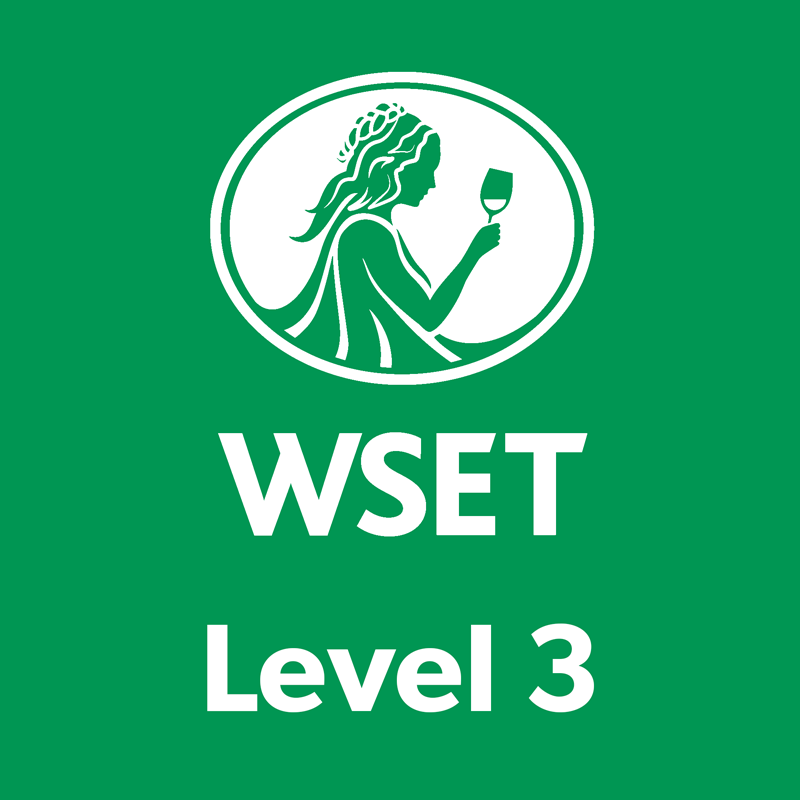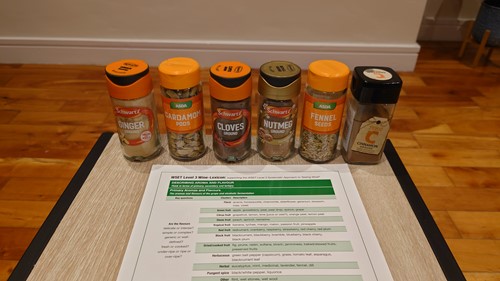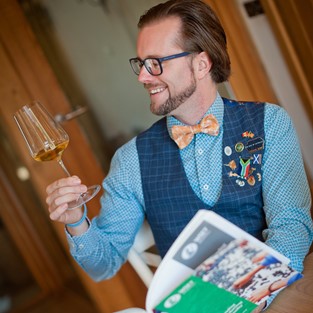
Posted by: Andy Kelly
Date: 18-04-2022
Looking to take the plunge and study for your WSET 3? Then check out some of the things I learnt during my studies. Who knows, they may just help!
After having completed my WSET 2 in 2019, the next natural step for me was to try out WSET 3. After a year’s delay because of covid, I was finally able to sit down in a classroom in May 2021 and begin my studies. It was a massive step up from the WSET 2 and I was taken aback by the amount of information that I’d need to absorb to give me a fighting chance. What follows is a (not so) brief summary of what I learned about WSET 3, my experiences and some tips to help you if you decide to take the plunge and for your studies:
The Difference from WSET 2
I really enjoyed WSET 2 – it was a small group in a really relaxed environment and we got to drink some amazing wine. I even attribute my level 2 course for my appreciation of white and sparkling. WSET 3, however, is a completely different beast! The setting was more formal, the coursebook is noticeably thicker and the exam is much more in-depth with short written answer questions and a tasting exam accompanying the usual multiple choice. Expect written homework each week and if you get your coursebook before the course starts then get stuck in!
We had a couple of people on our course who were overawed by the exams and walked out very early. They doubtless will have enjoyed the wines they tasted but they will have failed their theory. For me, WSET 2 allows you a certain level of enjoyment whereas WSET 3 feels more like you’re actually studying for a qualification. We only had two people in our WSET 2 who needed the qualification for their careers. For WSET 3 it was more like three quarters of the room who were looking to use this to progress their career.
The Setting
The relaxed environment was largely stripped away for the WSET 3 course for several reasons, most of which I attribute to covid. We were set out in a Victorian school style with a few metres between each student in a large room. It was fine for the theory but we lost out on vital interaction during our tastings because we couldn’t have meaningful discussions with each other. With restrictions now having eased, take advantage of being closer together and engage with your fellow classmates, especially on the tastings. Set up a WhatsApp group so if you do any tastings at home, you can share your thoughts with the group. If you’ve built strong relationships with fellow classmates then why not do a private tasting amongst yourselves? It’s something we never did and I would have definitely benefitted from. Speaking of which…
The Tasting
For the exam, you’ll be given two tastings (one red, one white, no sparkling or fortified) which you will have a half hour to complete. You’ll probably be tasting in the region of 80 wines from areas which could end up on the exam so there will be plenty of opportunity to hone your skills. You will likely only get two chances at a mock exam however and this is where I struggled. I failed both mock exams for a variety of reasons (the fire alarm going off during one mock exam was a particular highlight) but I made two major mistakes:
Smell Everything…
and I mean EVERYTHING. Fruit, vegetables, meat, drink, furniture, floors, paper, pencils, books, plastic, smell it all! It will really help you with your tasting exam which places a good deal of importance on what you can smell from the glass. You may also experience smells that you may not have come across before so don’t be afraid to seek them out. Elderflower juice, spices such as clove & nutmeg and wax candles described as jasmine and orange blossom actually helped me. They weren’t expensive and for the sake of a few quid probably earnt me a couple of marks.

Buy Locally
You might think that the 80 wines you will be provided with will be enough to hone your skills, and they may be. They weren’t for me, however. If you’re taking your exams in the UK then I’d recommend buying Ned Halley’s Best Wines in the Supermarket. The book will cost you less than a tenner and Ned provides you with a plethora of wines (red, white, sparkling and fortified) across all of the major supermarkets in the UK. I identified grapes/styles where I was weakest and then used Ned’s book to buy examples that allowed me to hone my skills. I afforded myself a wry smile after the examiner told us we’d tasted a simple Pinot Grigio as part of our exam. I’d bought a few from my local Asda and had the tasting profile all worked out. If you’re taking the exam anywhere else in the world then the same rule applies. Identify where you’re weakest and do a bit of bulk buying to allow you to practice. Of course, if you have a local wine merchant near to you then seek them out. They will have likely endured the same exams as you and may be able to provide excellent examples of the wine you’re after. Who knows? Maybe they could even provide you with some great advice…
Practice Makes Perfect...
Even if you’re confident with your tasting, it would be worth practicing at home to just so you’re familiar with the exam format. On my first few practices my timing was all out, I was consuming too much of the liquid trying to identify acidity & alcohol and not leaving enough to identify the flavours etc. By the evening before the exam, however, my timing was perfect, my consumption was well-portioned and I was writing very clear tasting notes in prose which is how they prefer it. Don’t worry too much though: You can always ask for another glass of the wine you’re tasting during the exam and they will accept bullet points if you find it easier to work that way.
The Theory
If you take only one thing away from this article then please let it be this: Wine With Jimmy. The man is a savant and his seminars really supported my studies. Yes, there is a paywall via his website but log on to YouTube and approximately 50% of his entire WSET 3 seminars are free to watch and there are LOTS of them. Jimmy Smith runs his own wine school in London and is a qualified WSET 3 tutor so he’s telling you what you need to know and he does it in such a way that it really sank in for me.

Photo courtesy of www.winewithjimmy.com
I simply changed some behaviours to take advantage of Jimmy’s seminars. I’m an avid podcast listener when I’m pottering about or before bed so instead of the latest history podcast which would gently send me off to sleep, I was listening to Jimmy’s level 3 material. It was here that I began to pick up themes and patterns too: Guess where the best sites are to plant a vineyard in the Loire Valley? On south facing slopes. Guess where the best sites are to plant a vineyard in the southern Rhône? On south facing slopes. Guess where the best sites are to plant a vineyard in Baden…you see where I’m going with this!
Take advantage of the homework that you’ll be provided and ask the tutor if there’s any more that you could do as a practice. They may not be able to mark them all for you but it will give you a good idea of what you should be writing come exam day. Oh, and nail down your sparkling/fortified, 1 of the 4 questions will be in this area!
I should also highlight that 50% of all students actually fail the WSET 3 theory exam so definitely give this a lot of your time. You’re going to have 40-50 hours’ worth of lesson time if you’re lucky but you need to double that at home at the very least to give yourself a fighting chance of passing. Our tutor was really keen for us to concentrate on the tasting in the lessons so we could tune our palate to his so I put in at least 100 hours outside of the classroom to nail down my theory.
So how did I get on? Well, I passed! I got a merit for both my tasting and my theory and I was quite surprised by how well I did, particularly in my tasting.
I hope you this summary useful and if you’ve got any questions at all then don’t hesitate to find me over on twitter.